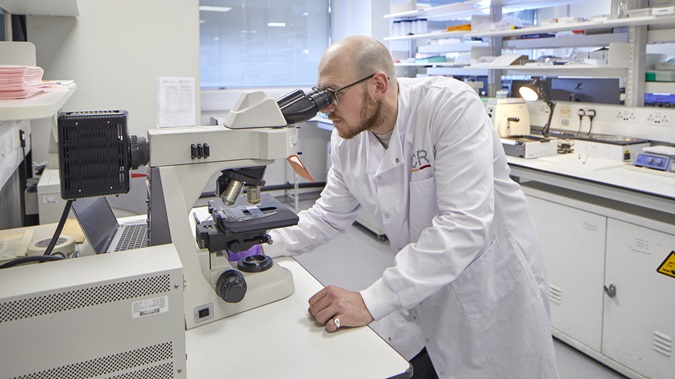Create a sustainable funding model for research in universities
Medical research charities play a central role in the UK life sciences ecosystem. They fund research across the full spectrum of disease areas, frequently prioritising those of unmet medical need. They embed patient perspectives into research design and delivery, ensuring that the research they support is aligned with the priorities of those most affected. Their contributions complement public and private investment, providing essential diversity within the UK research base.
Universities provide the infrastructure, expertise, and environment required to deliver this research. The collaboration between the two sectors is both extensive and highly productive, and a key part of the UK’s international exceptionalism and leadership in life sciences research. In 2024, members of the Association of Medical Research Charities (AMRC) invested £1.6 billion in research, of which 87 per cent was conducted within universities. This statistic highlights both the scale of the partnership and its importance to the UK’s research landscape.
However, there is a structural challenge to the sustainability of this model. Universities are experiencing increasing financial strain, with nearly half of institutions forecasting a deficit in the 2025-26 academic year. Charities fund only the direct costs of research – such as researcher salaries and consumables – and do not cover indirect costs such as energy, estates, and administrative overheads. This reflects the expectations of donors that their contributions be directed purely towards research activity. While appropriate, this funding model results in a gap that universities cannot fill without additional Government support.
In response, the Government established the Charity Research Support Fund (CRSF) in 2006, with an initial annual allocation of £135.5 million and an ambition to expand to £270 million per annum by 2010–11. The CRSF represented a clear recognition of the distinctive role that universities play in enabling charity-funded research and of the Government’s role in ensuring that this relationship remained viable.
However, nearly two decades later, the CRSF has failed to keep pace with the scale of charity investment in research and is not longer fill for purpose. The relative value of the fund has fallen to 18p per £1 of charity investment – down from 33p in 2008. This represents a huge challenge for universities covering deficits on charity research income – especially for smaller, specialist institutions.
In our CRSF policy position paper, we outline the action we think Government need to take to ensure the CRSF can continue fulfilling its purpose and sustain the unique partnership between charities, universities and government.
Our ask: Government should increase investment in the Charity Research Support Fund (CRSF) to restore its relative value so it is providing universities 33p of CRSF support for every £1 of charity funding. To do this would require an additional £176 million of investment annually. If this level of investment is not feasible in the current financial climate, we propose introducing a cap on the maximum average eligible income used to calculate CRSF allocations. Setting such a cap (which could be introduced at a number of levels) would significantly reduce the Government’s investment requirement while ensuring that 112 of the 115 institutions receiving CRSF support see an 80% increase in their allocation - a vital lifeline for the majority of institutions across England.

Our policy position paper on the CRSF
Advocacy blog posts

The Charity Research Support Fund: An overlooked, and neglected, lifeline for UK science

100 days in – what do we need from the Government to enable cancer research to thrive?
Latest ICR News

Study sets out clear recommendations for patient-reported outcomes in early cancer drug trials

ICR welcomes NICE recommendation of talazoparib for advanced prostate cancer
